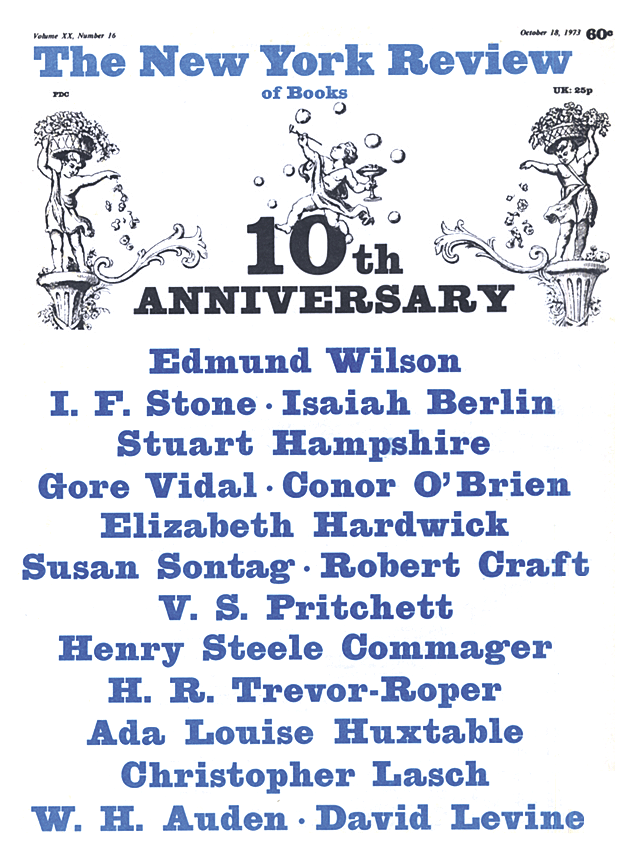In response to:
The Good Old Days from the June 14, 1973 issue
To the Editors:
I had no reason to believe that Ronald Steel would look favorably upon my book The New Left and the Origins of the Cold War [NYR, June 14, 1973], but as an old fan of his own work I expected a critique of more substance. Unfortunately, as his prose makes clear, he chose to borrow most of his criticisms from memoranda which several revisionists have circulated in the field. Had he analyzed these memoranda more carefully, he would have realized that they are as shabbily constructed as the books they defend.
I cannot in the space of a letter rebut each of Mr. Steel’s specific points, though it would be simple enough to do. Let one item suffice as an example. He quotes me as stating that Lloyd C. Gardner “fails to provide any real evidence” for one of his major contentions. “Yet,” according to Mr. Steel, “one searches in vain for sustained criticism that will effectively document this accusation.” Well, I must confess that I do not know how to mount a “sustained criticism” on the non-existence of something, except perhaps to say “There is no evidence on page 1, page 2, page 3. …”
As to my conclusion, Mr. Steel argues that even if. I were correct on whether the revisionists had distorted the evidence, this would not in itself disprove their theses. And of course it is possible—though unlikely—to commit errors at every step and still come up with a valid interpretation. Yet he takes me to task for saying precisely that in my book. But it remains for the revisionists, not for me, to write a New Left version of the origins of the Cold War based on the evidence as it exists.
Finally, Review readers should know that Mr. Steel is dead wrong on two matters. He claims that “Maddox seems to think there is such a thing as a single ‘New Left’ point of view.” Wrong. In my introduction (p. 4) I specifically state that “the revisionists disagree among themselves on a wide range of specific issues,” and make this clear a number of times elsewhere. Second, Mr. Steel says that I have tried to prove the existence of “collusion and conspiracy” among the scholars I have criticized, and he also refers to my allegation of a “plot.” Wrong again. How he could have read this into my work astounds me, as I have never believed that such is the case. That he could have interpreted my remark that a number of people have employed some of the same methods as evidence that I am “prone to see conspiracies” says something, but not about me.
Robert James Maddox
This Issue
October 18, 1973


